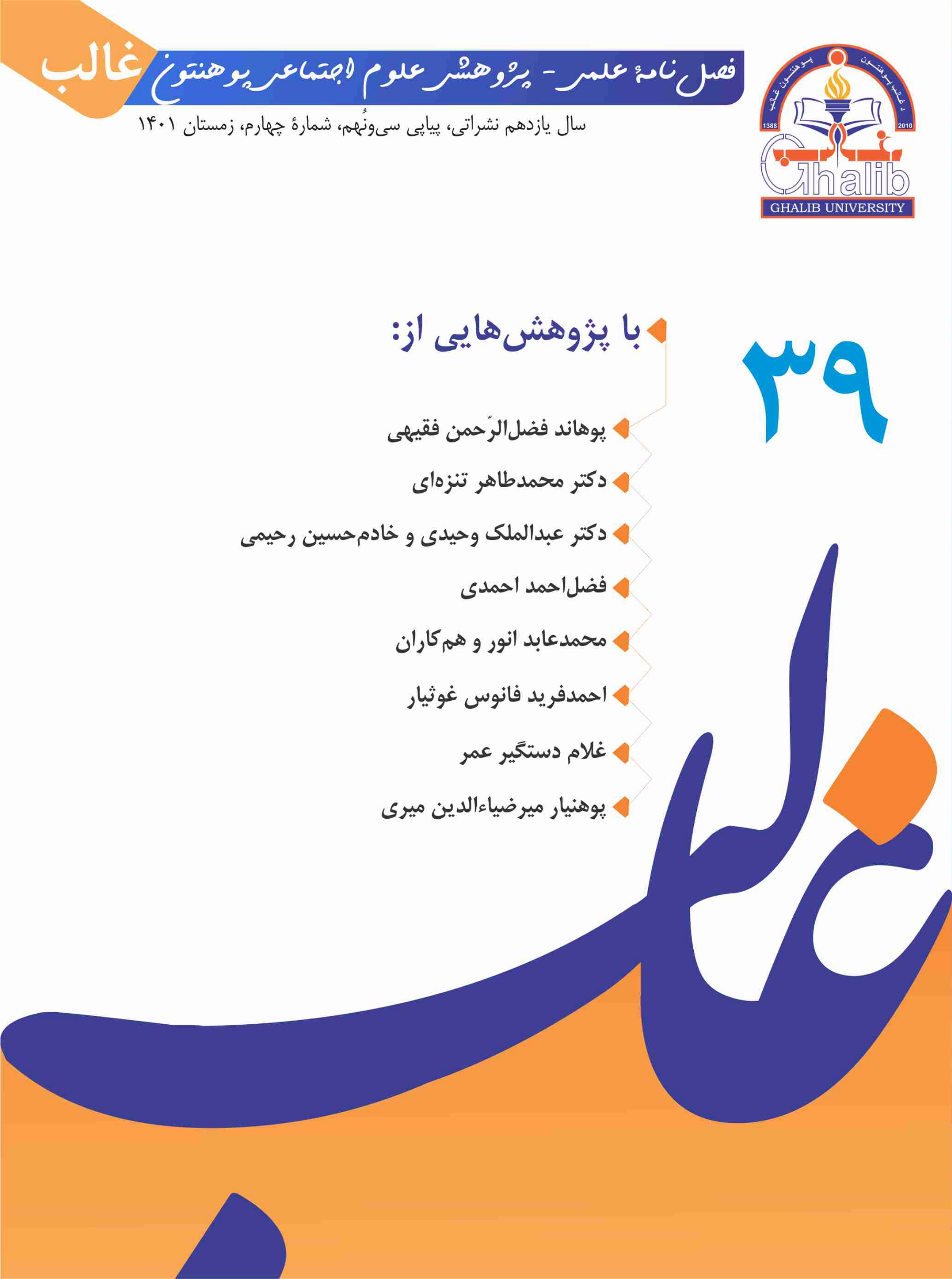Study of the Relationship between Inspirational Motivation and Emotional Commitment with the Mediating Role of Internal Consistency in Ghalib University of Herat
DOI:
https://doi.org/10.58342/ghalibqj.V39.I4.8Keywords:
Inspirational Motivation, Emotional Commitment, Internal Consistency, Ghalib UniversityAbstract
Inspirational motivation is a type of encouragement in order to raise employees' awareness about the mission, vision and commitment to the vision of the organization. Organizational insight, communication, encouraging employees, giving employees autonomy are the core values of inspirational motivation. The main purpose of this research is to study the relationship between inspirational motivation and emotional commitment with the mediating role of internal consistency in Ghalib University of Herat. The statistical population of this research consists of all the employees of Ghalib University, which consists of 260 people, out of which 152 people were selected as the statistical sample of the research. The sampling method of the current research is practical and correlation type. In order to collect data, standard questionnaires of transformational leadership, organizational commitment and organizational culture were used, whose validity was confirmed by content method and reliability based on Cronbach's alpha coefficient. In order to draw tables and graphs, descriptive statistics were used, regression and structural equations were used to test the hypotheses, and AMOS and SPSS software were used to analyze the data. The main question of the current research is: What kind of relationship exists between inspirational motivation and emotional commitment with the mediation of internal consistency in Ghalib University? The findings of the present research show that there is a significant relationship between inspirational motivation and emotional commitment in Ghalib University; also, internal consistency has a significant mediating role between inspirational motivation and emotional commitment.
References
بهرامی، شهاب؛ زدشتیان، شیرین و بهرام یوسفی. (1393). «تأثیر رضایت شغلی بر تعهد عاطفی کارکنان وزارت ورزش و جوانان». ایران: نام نشریه. دورۀ دوم. شمارۀ چهارم. صص96-87. . <http://ntsmj.issma.ir/article-1-214-fa.html>.
تقیپور، فاطمه. (1392). «سبک رهبری توانمندساز مدیریت دانش در صندوق ضمانت صادرات ایران بر اساس مدل باس». پایاننامۀ کارشناسی ارشد. دانشکدة مدیریت و حسابداری دانشگاه علامه طباطبایی. 18-29.
حمزه، حبیب؛ حمزه، محمدباقر. (1395). «تأثیر فرهنگ سازمانی در سازمانهای رسانهیی». ایران: نام نشریه پنجمین کنفرانس بینالمللی پژوهشهای نوین در مدیریت، اقتصاد و حسابداری. شمارة پنجم. صص28-1. <https://www.sid.ir/paper/865837/fa#downloadbottom>.
صالحی کردآبادی، سجاد؛ زاددوستی، فرزانه. (1399). «نقش تعهد عاطفي و هزينۀ ادراکشده در رابطه بين پاداش، تسهيم دانش و عملکرد تيمي در سازمان امور مالياتي استان گيلان». ایران: نشریۀ علمی وزارت علوم. پیاپی سوم. شمارۀ دوم. صص65-88. <https://doi.org/10.22080/shrm.2020.2984>.
عرفانیان خانزاده، حمید؛ ترکانلو، زهره. (1396). «بررسی عوامل نرم مؤثر بر بهرهوری: تأثیر رهبری توانمندساز برانگیزش پیشرفت و انگیزش الهامبخش و ترغیب ذهنی». ایران: نشریۀ مدیریت بهرهوری. سال دهم. شمارۀ 40 صص 131-157.
<https://civilica.com/doc/1381641>.
قنبری، سیروس؛ عزیزی، احمد. (2020م). «رابطۀ اخلاقورزی با اهمال کاری تحصیلی و نگرش به تقلب». ایران: تدریسپژوهی. پیاپی 10. شمارۀ اول. 274-296. <https://journals.uok.ac.ir/article_62410.html>.
میرمحمدی، سیدمحمد؛ رجائی، هادی. (1393). «رابطۀ رهبری تحولآفرین و مسؤولیت اجتماعی سازمان». ایران: فصلنامۀ علمی - پژوهشی مطالعات مدیریت بهبود و تحول. 23 (74) 9-10. <https://dorl.net/dor/20.1001.1.22518037.1393.23.74.1.8>.
Afşar, S. T. (2011). Çalışma yaşam kalitesinin örgütsel bağlılık düzeyi üzerindeki etkisi: Devlet ve vakıf üniversitelerinde çalışan akademisyenler üzerine nicel bir araştırma. Yayınlanmamış Doktora Tezi, Hacettepe Üniversitesi Sosyal Bilimler Enstitüsü, Ankara.
Meyer, J. P., Stanley, L. J., & Parfyonova, N. M. (2012). Employee commitment in context: The nature and implication of commitment profiles. Journal of vocational behavior, 80(1), 1-16.
Odoardi, C., Battistelli, A., Montani, F., & Peiró, J. M. (2019). Affective commitment, participative leadership, and employee innovation: A multilevel investigation. Journal of Work and Organizational Psychology, 35(2), 103-113.
Ribeiro, N., Yücel, İ., & Gomes, D. (2018). How transformational leadership predicts employees’ affective commitment and performance. International Journal of Productivity and Performance Management.
Rüzgar, N., & Bedel, B. (2020). A Research on the Relationship Between Organizational Cynicism and Organizational Commitment: Textile Sector Example.
Downloads
Published
How to Cite
Issue
Section
License
Copyright (c) 2022 Ghalib Research and Scientific Quarterly Journal

This work is licensed under a Creative Commons Attribution-NonCommercial-NoDerivatives 4.0 International License.













